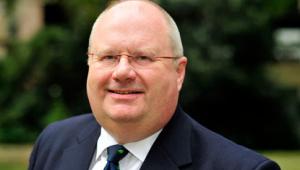By Richard Johnstone | 02 July 2012
A cross-government approach is needed to tackle the lower literacy standards achieved by boys and to close the ‘reading gender gap’, MPs and peers said today.
Warning that the gender gap in reading standards could hit the UK economy, the All-Party Parliamentary Literacy Group made nine recommendations to improve boys’ reading skills. A report by its Boys’ Reading Commission, compiled with the National Literacy Trust charity, found that last year, an estimated 60,000 boys failed to reach the expected level in reading at age 11.At this age, there is a gender gap of 8 percentage points in the proportion of pupils reading at the expected level, and this grows to 12 points by age 13, the report said. The gender gap in achievement of English GCSEs at grades A* to C is 14 percentage points.
A National Literacy Trust survey of UK schools found that more than three out of four (76%) were concerned about boys’ underachievement in reading, and the report calls for action to be taken in ‘homes, schools and communities’.
A cross-government approach to literacy should involve all departments, the report said. ‘The cost of poor literacy is borne by all areas of government from criminal justice to health,’ it explained. ‘All departments should therefore be seen as stakeholders in addressing low literacy.
‘The Department for Education needs to develop a partnership approach to literacy across government departments and with the community and voluntary sector.’
It added that every school should have access to an evidence framework to inform effective practice in supporting boys’ reading.
Schools must promote reading for enjoyment and involve fathers more in their reading strategies. Every teacher should have an up-to-date knowledge of reading materials that will appeal to disengaged boys, and every boy should have weekly support from a male reading role model.
Gavin Barwell, the chair of the literacy group and the Boys’ Reading Commission, said that the Department for Education should use all resources at its disposal to help close the gap and endorse Ofsted’s recommendation that every school develop a reading strategy. It should also ask the education watchdog to consider whether there should be a focus on pupils who are more likely to fall behind.
The commission found that the gender gap was ‘a complex issue’, with evidence that it ‘begins at home’.
Barwell said that 'the issue is becoming more pressing'.
He added: ‘Literacy is a significant issue for all: a recent CBI study found that many employers are providing basic skills training for their school leaver recruits due to the demands of an increasingly complex workforce and the government has rightly focused on ensuring all young children have the necessary decoding skills.
‘However, specific action is required to address the gender issue. Boys with poor literacy will struggle at school and throughout life. We need to act to ensure all our children fulfil their potential and contribute to making the UK economy globally competitive.’
MPs and Lords who sat on the commission heard evidence from teachers, researchers, literacy experts and children’s authors Michael Rosen and Anthony Horowitz.






















